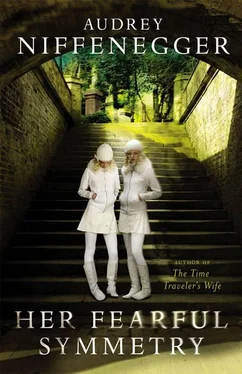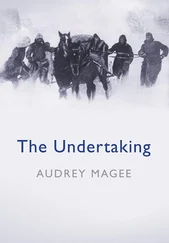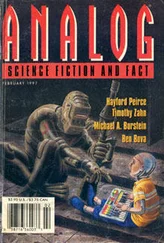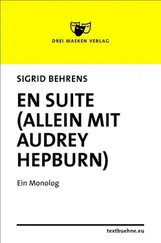“Bye, then, Marijke.”
“Bye.”
Marijke stood in her cubicle with her hand on the receiver. It was a little after three o’clock, and she could spare a few minutes, despite what she’d said to Robert. She should do it now. Martin had caller ID, so she would only call him on her mobile. She felt a pang of guilt. When she’d left, a year ago, she had called every few weeks. Now she had allowed two months to go by without calling. She held the phone to her ear, counting the rings. Martin always answered on the seventh ring; yes, here he was.
“Hello?” He sounded interrupted; she wondered what he had been doing when the phone rang, but she knew better than to ask.
“Hallo, Martin.”
“Marijke…” She stood with the phone pressed hard against her ear. She had always loved to hear him say her name. Now it made her sad. Marijke leaned over with the mobile still pressed against her ear and then crouched down next to her desk, so that when she looked up she saw only the walls of her cubicle and the acoustical tiles of the ceiling. “Marijke, how are you?” He did not sound any different than the last time she’d spoken to him.
“I’m fine. I got promoted. I have an assistant now.”
“Stellar, that’s excellent.” There was a pause. “Male or female?”
She laughed. “Female. Her name is Ans.”
“Hmm, okay, well, that’s great. I don’t want you being swept off your feet by some young Adonis with”-here Martin lowered his voice-“fab-u-lous e-nun-cia-tion.”
“Don’t worry, you, there’s nobody here but us radio geeks. The young ones are too busy chatting each other up to be bothered with the likes of me.” Marijke felt oddly pleased that Martin imagined she was beset by suitors. She could hear him lighting a cigarette, and then the soft exhalation of smoke.
“I quit smoking,” she told him.
“Surely not. What will you do with your hands? Your poor hands will go crazy without a ciggy to occupy them.” Martin’s tone was caressing, but Marijke could hear the effort to be casual. “When did you give up?”
“Six days, twelve hours, and”-she looked at her watch-“thirteen minutes ago.”
“Well, marvellous. I’m jealous.” At the word jealous there was a mutual pause.
Marijke combed her brain for a new topic. “What are you working on? The Assyrians?” Martin occasionally worked for the British Museum, and the last time they’d talked he had mentioned some Aramaic inscriptions that he was translating.
“Mmm, I finished those. They’ve got me onto a little trove of poems, an Augustan lady named Marcella is supposed to have written them. If they were real they would be rather exciting; there are hardly any surviving works by women from that period. But they aren’t quite right. I think that Charles has been hoodwinked, alas.”
“How do you know they are not right? Surely Charles had them vetted?”
“As objects, they seem fine. But the language is wrong in all sorts of small ways. It’s sort of how it would be if you decided to forge some new Shakespearean sonnets; even though your modern English is lovely and charming, you would make odd little mistakes with the archaic turns of phrase, the grace notes that would have come naturally to a writer of that time. I think the writer is a twentieth-century Frenchman with an excellent command of nineteenth-century Latin.”
“But aren’t they copies of copies? Perhaps the mistakes were introduced…”
“Ah, well, they were found at the library at Herculaneum, you see, so they were supposed to be the genuine article. I must call Charles today. He’ll be hopping-”
Marijke’s boss appeared in the entrance of her cubicle, looked around confusedly and discovered her sitting on the floor. Marijke looked up at Bernard from her crouch and mouthed, Martin. Bernard rolled his eyes and continued to loom over her, his sparse grey hairs standing up as though he were a cartoon character who had been electrocuted. He pointed to his watch. She stood up and said, “I’ve got to go, Martin. I’m on deadline.”
Martin experienced a jolt-talking to Marijke was so comforting, so normal and right, that he had almost forgotten; it had been so much like the conversations they used to have every day, he had forgotten that it would soon be over. And when would she call again? He panicked.
“Marijke-”
She waited. She wished Bernard would stop looking at her. She made a little rotating motion with her free hand. Yes, I know. I’ll be off in a moment. Bernard wiggled his enormous eyebrows at her warningly and went back into his office.
“Call again soon, Marijke.”
“Yes.” She wanted to. She knew she wouldn’t. “ Groetjes, my love.”
“ Doeg! Ik hou van je …” They both paused. She hung up first.
Martin stood in his office, holding his mobile. A crowd of emotions filled him. She called. She said “my love.” I should have asked her more questions, I talked too much about my work. She said she would call soon. How soon? But she didn’t say she would call until I asked her to call. But she called today, so she will call again. When will she call? I should write down questions to ask her. She gave up smoking, that’s amazing. Maybe I should too. We could do it together, next time she calls I could tell her. But when will she call? Martin shook another cigarette from the pack and lit it. She called me. A minute ago, we were talking. He pressed the mobile to his cheek. It was warm. He felt affection for the little phone, it had brought Marijke’s voice to him. Carrying the phone in one hand and the cigarette in the other, Martin walked to the kitchen. When he got there he walked back to his office again. She called me. She promised to call again. She called. When will she call again? Maybe I should give up smoking…
Marijke flipped her phone shut and put it in her pocket. She finished the piece for Bernard, emailed it to him. She heard the ping from his computer that said the piece had crossed the twelve feet between their desks. Someone said, “You’re on air in fifteen minutes.” She nodded and made her way towards the studio, but detoured into the loo, where she leaned against the wall and cried. He doesn’t change. She wished she hadn’t called. On the phone it was too easy to remember Martin as he had once been. Marijke washed her face and ran to the studio, where her engineer gave her an annoyed look. Months would go by before she called Martin again.
R OBERT HAD been imagining the arrival of the twins for a year. He had whole conversations with them in his mind: he told them about London, the cemetery, Elspeth; he chatted to them about restaurants, his thesis, all sorts of things. As he went about his days in the long year of their imminent arrival, Robert noted points of interest- There’s Dick Whittington’s cat. They’ll want to know about that…I’ll take them to Postman’s Park, to the Hunterian Museum, to the John Soane. We’ll ride the London Eye at sunset. He and Elspeth had done all these things together. We’ll go round Dennis Severs’ house at Christmas. And the Foundling Museum. Robert became, in his imagination, the tour guide of the twins’ London lives, their indispensable sherpa, their native speaker. They would naturally come to him with their little dilemmas and queries; avuncular, he would advise them and aid them in their London initiation. Robert had looked forward to the twins. He had enveloped them with so many witticisms, expectations and hopes that now, when Julia and Valentina had finally actually arrived, Robert was quite frightened of them.
He had thought that he would simply walk upstairs, knock on their door and introduce himself. But the sound of their footsteps and laughter paralysed him. He watched them come and go, traipsing through the front garden in matching frocks, carrying bags of groceries, flowers, an ugly lamp. Why do they need a lamp? Elspeth has plenty of lamps.
Читать дальше












